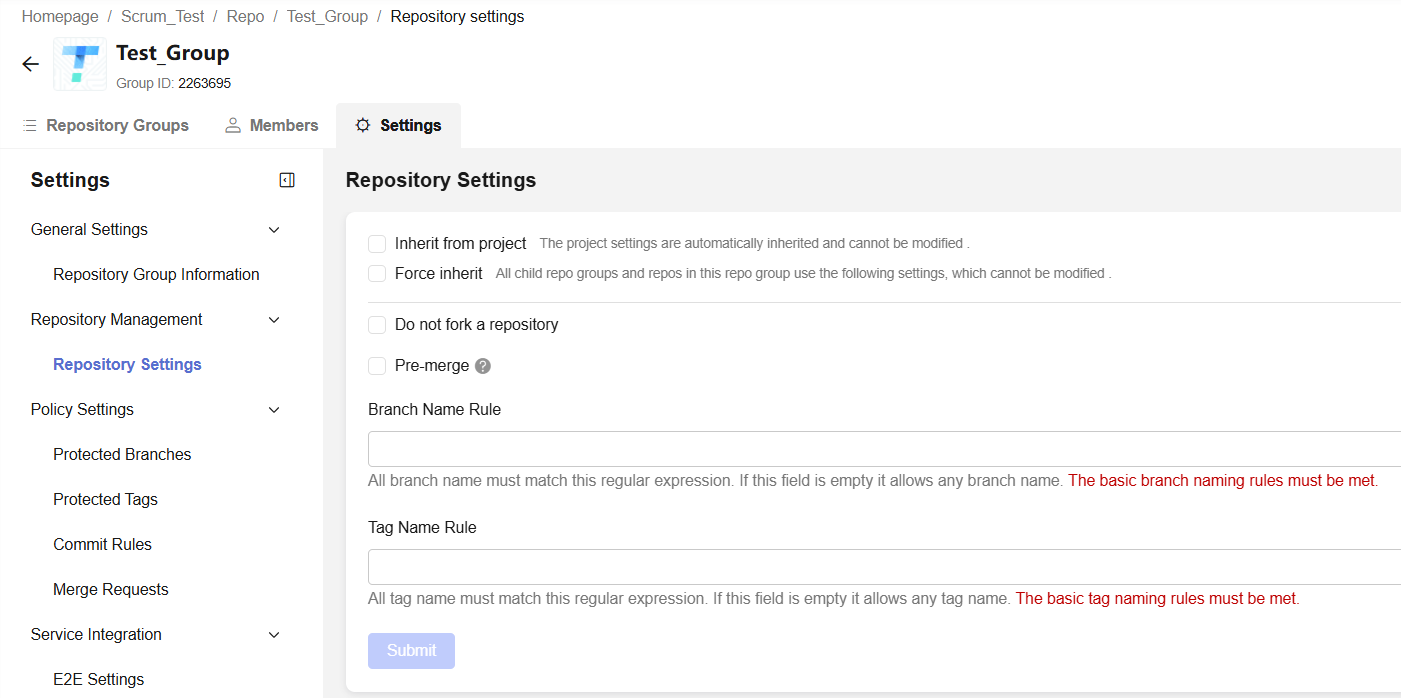Configuring Repository Settings in a Repository Group
Constraints
|
Item |
Description |
|---|---|
|
Permission constraint |
Repository group members who have the setting permission for repository groups can configure permissions on this page. For details, see Configuring a Repository Group's Permissions. Repository group members can only view this page. |
|
Function constraint |
If you select Inherit from project, the settings of the project will be used and cannot be changed. |
Configuring Repository Settings
- Log in to the repository group Test_Group as a repository group member who has the set permission, and choose Settings > General Settings > Repository Settings in the navigation pane.

- If Force inherit is selected, the settings of the current repository group take effect for all the repositories in this repository group and its child repository groups.
If Inherit from project is not selected, you can configure repository settings by referring to Configuring the Repository Settings. For details about common problems during the configuration, see Related Document.
Feedback
Was this page helpful?
Provide feedbackThank you very much for your feedback. We will continue working to improve the documentation.See the reply and handling status in My Cloud VOC.
For any further questions, feel free to contact us through the chatbot.
Chatbot





